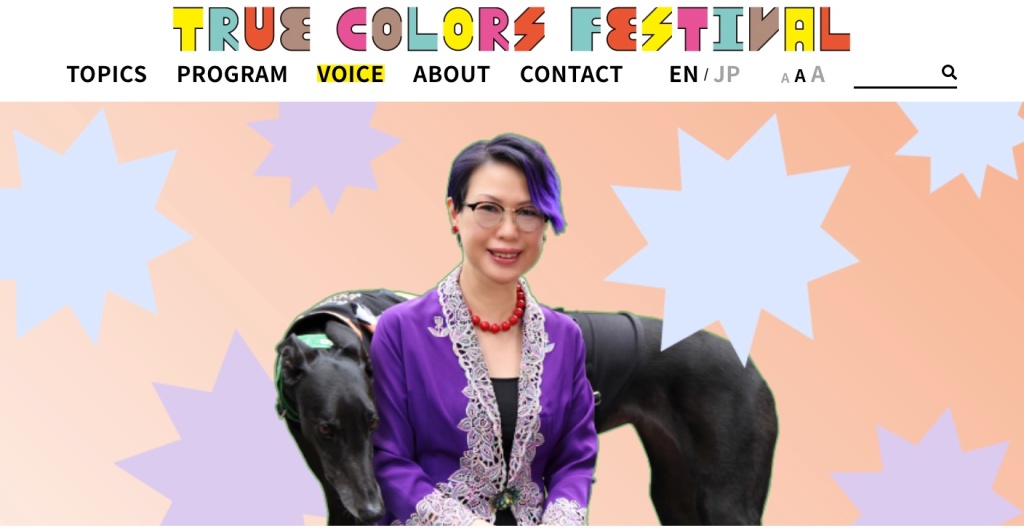Author’s note:
This piece took me awhile to complete, because I have been struggling with the devastating aftermath of Lucy’s death on my mind, body and every part of my existence. I was invited some time ago to write a reflection for a blog-journal, but upon submitting it on 4th July 2023 at 14:22 Singapore time, I was told by the editor (in the UK) that they will push back my article to end July, because the editor was too busy with other things. Coincidentally, they have just published another piece expressing almost identical thoughts, though written in a completely different style, of course. I am fine with that. The more people asking the same questions, the louder our voices become.
I have therefore decided to put mine here, unedited, with date and time reflecting the exact moment my piece was submitted via cyber-waves into the Great Unknown. Whether or not the journal’s editor decides to publish it in the near future, when and with what edits they deem fit, is immaterial to me. The Artist respects the autonomous entity of The Work, which will forge onwards along its own inexorable path, free from the tyranny of control and manipulation at the hands of humans preoccupied by and with human-centric glorification and maniacal demands of human ego. After some deeper contemplation, I feel that The Work, in this embodiment, is telling me that it would like to be launched from this Clement Space, an interstice created for me, for us both, by Lucy, because it is in its very purest essence an intimate tribute to Lucy, and to her and only her, do I really owe anything at all. When the Artist frees The Work, the Artist shall also be emancipated. I love you so, Lucy Like-a-Charm, thank you for teaching me such profound sensing.
Content warning: suicide and death is discussed in this article.
Lucy Like-a-Charm – Elemental Empathic Resonance.
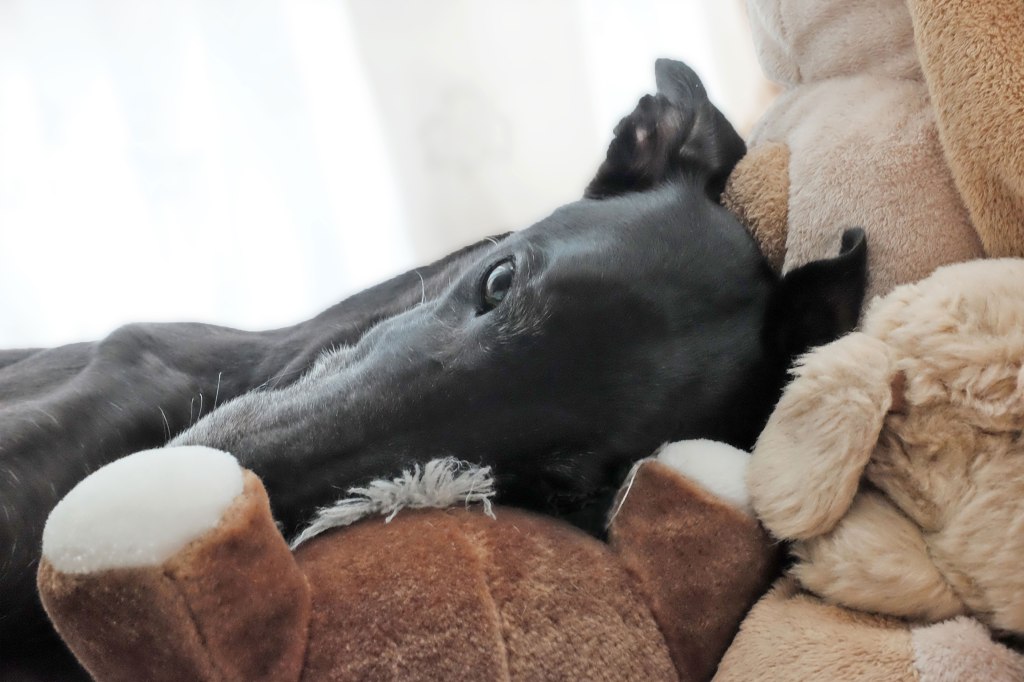
For ten years and eight months, I awoke and drifted off to sleep gazing into the eyes of the purest Beauty I have ever known, my heart brimming over with awe and gratitude that she was mine to have and hold: this amazing canine called Lucy Like-a-Charm, rescued from the cruel Greyhound racing industry in Australia.
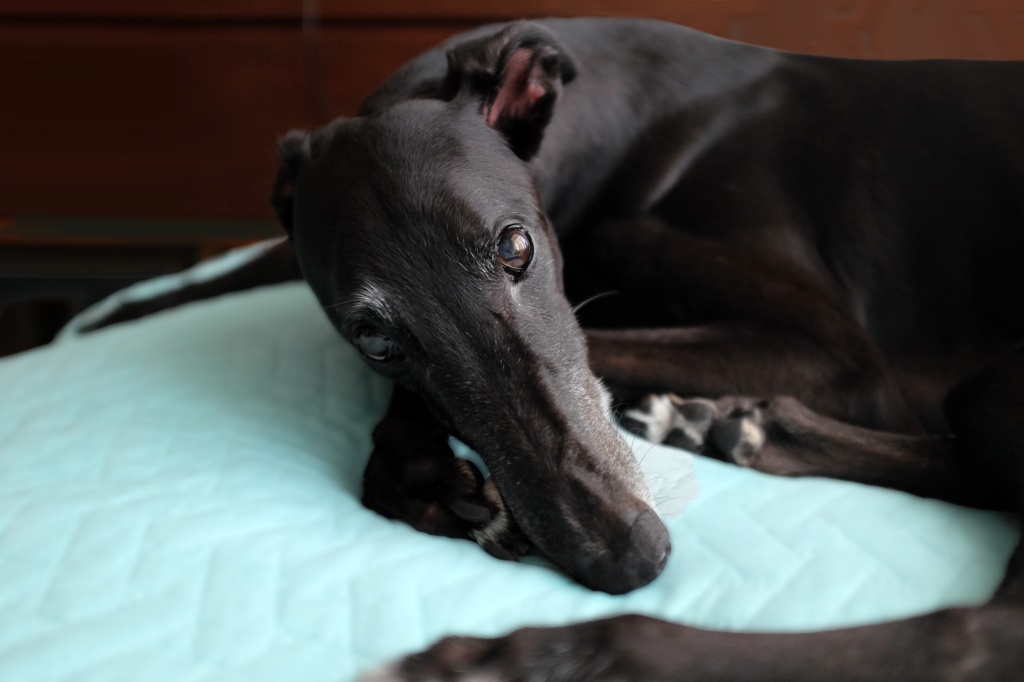

Lucy entered my life on 11th July 2012 in Sydney, Australia, during the first year of my PhD candidacy at the University of New South Wales. I did not know then, but that moment marked the beginning of the very best years of my human existence.

I was unaware of my Autistic1 identity until my early forties, hence, I belong to the category frequently referred to as the “lost generation”.2 During my childhood, I was surrounded by pets — white mice, guinea pigs, rabbits, ducks, chickens, fish, and dogs. I loved the Dr. Doolittle stories by Hugh Lofting, which I read over and over again. Even though I knew these stories were fantasy, I was nevertheless convinced that non-human animals communicated in their own languages, and we humans could do so with them, if only we learned how. Back then, people just laughed at me, but today, more than fifty years later, animal communication has become a subject of extensive study and practice. At the age of five, I developed persistent painful, visible physical symptoms that confounded medical experts, so they said it was “psychosomatic”, and people accused me of deliberately making myself sick, as if I was gifted with such a super power! Medical science has since progressed a long way, and doctors now presume it is probably an autoimmune condition (still unconfirmed) under the broader category of vasculitis.
Looking back, I realise that most of my struggles were the consequence of society’s inflexible, prejudicial attitudes towards conflicting divergences. As if chronic illness were not challenging enough, navigating an alienating human social system with its sensorially assaultive built environments became increasingly perilous as I grew older and the politics of neurotypical human interactivity became more and more convoluted. Like many Autists in similar circumstances, I found solace in the non-human domain: spending time with my pets and other creatures, plants and trees in the garden; engrossed in my chemistry set; reading, creating art and music; and collecting favourite objects. Here, in this vibrant ecology of wonderment, instead of being a hindrance or anomaly, my Autistic heightened senses, attraction towards detail and minutiae, and fascination for rhythm, pattern and order found mellifluous reciprocity.

Humanity considers itself superior to the non-human, a perception I suspect is based on what we humans do not know, rather than what we know, about the non-human animals who share our earth, in close proximity and beyond. Between us, Lucy was the finer being by far. She carried me into a dimension of symbiosis far richer than any relationship I’ve ever had before — whether with my pets or the few good humans I know and love. She has never once failed me, but I, maladroit human, have failed her over and over again, each time being humbled by her forbearance and forgiveness. No human possesses that capacity and strength of heart and soul. Lucy understood my expressions many times better than I hers. She taught me our own secret language of exuberant joy, kaleidoscopic colour, thrilling exhilaration, quirky eccentricity and reverent wonderment. For more than a decade, I completely forgot what loneliness felt like.
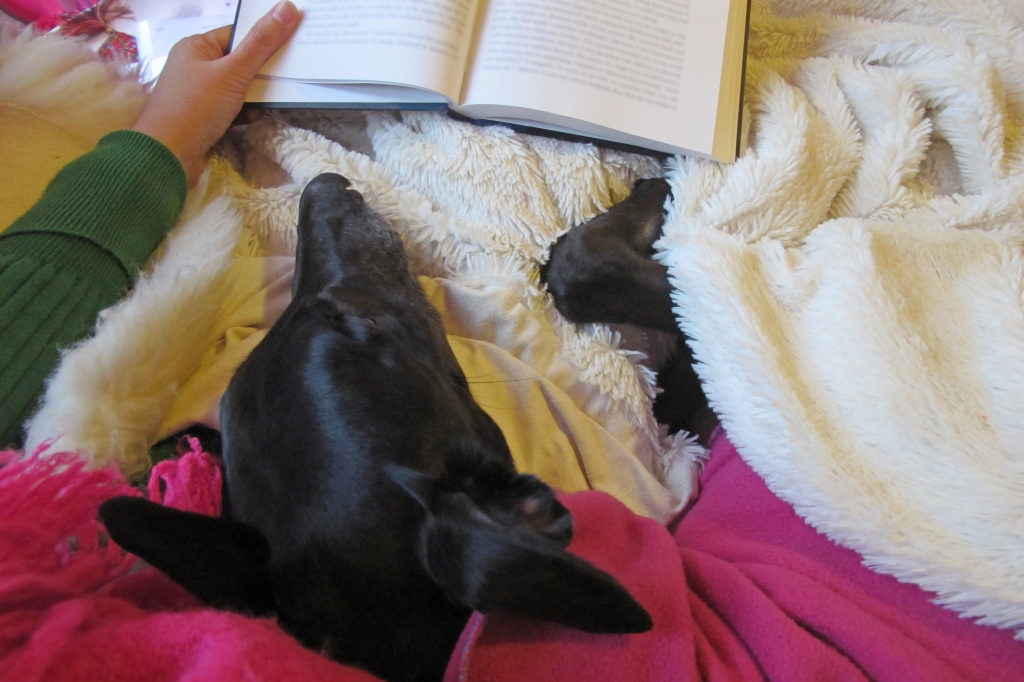
Numerous studies reveal that suicidal thinking and suicide rates are disproportionately high among Autistic people.3 Lucy saved me from suicide in 2016, during an intensely traumatic incident just weeks before the deadline for submission of my dissertation. Pressing her front paws hard on me, she awoke me from my dissociative state to her presence.4 In that instance, a simple thought entered my mind: “What would happen to Lucy if I died?” From that moment, Lucy became my reason to live, compos mentis: I was determined to survive because of her.
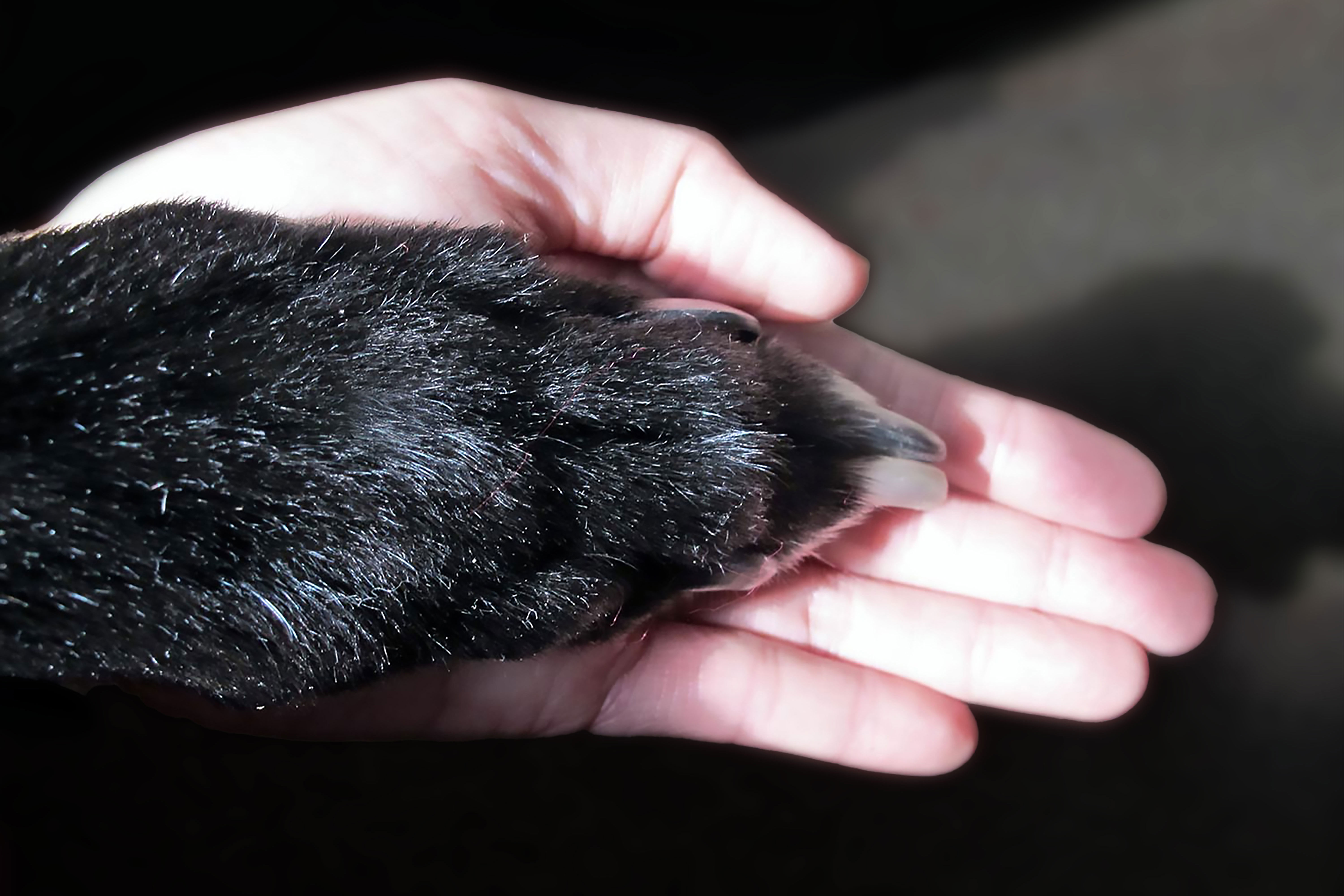
As my assistance dog, she challenged stereotypes and transcended entrenched norms. Very early on, Lucy began to perform ‘tasks’ which assistance dogs are specially trained to do from a young age. Lucy was a former racing dog, how could she know? Yet, she knew exactly what I needed for my specific sensory anxieties and lapses in executive functioning even before I was aware of them, and decided of her own accord to help me — demonstrating acute discernment and autonomous choice. Lucy’s behaviour in public also rivalled that of assistance dogs, even before we began official training for the role.

It is common practice that when an assistance dog retires from active duty, the human handler would acquire another, either keeping the old one as a pet or rehoming the dog to someone else. When it came time for Lucy’s retirement, I was asked to consider finding a successor. I, of course, declined, but this brought to the forefront pertinent issues that greatly disturbed me about the system currently in place. Giving Lucy away was out of the question, but I could not even bear the thought of leaving Lucy at home while I take another dog out. Ours was a profoundly intimate connection. How would Lucy feel?
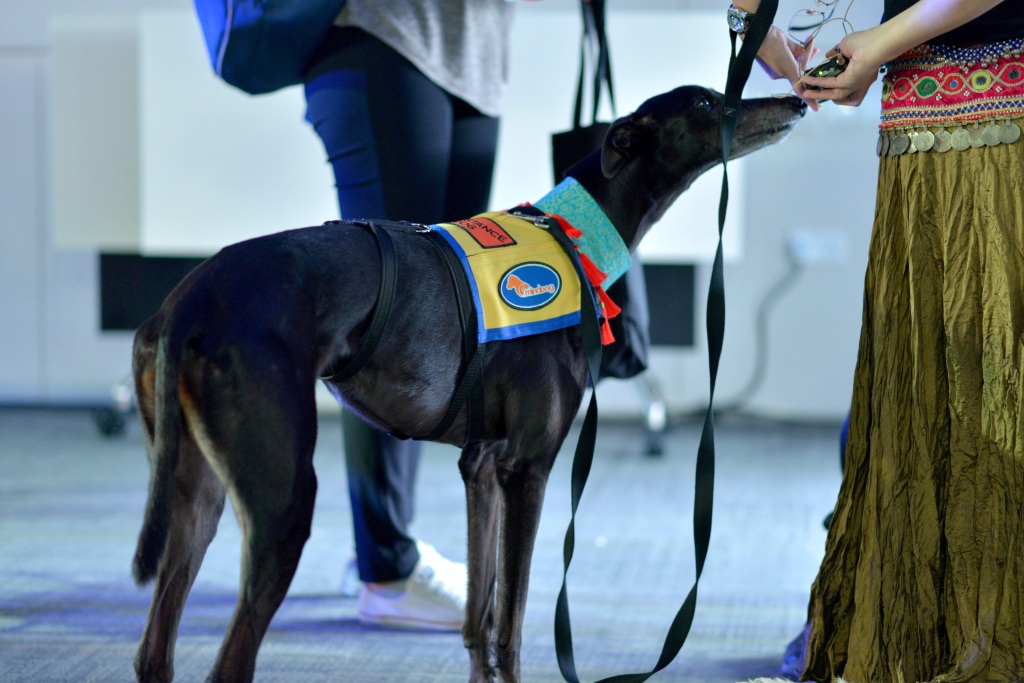
I have since begun to ponder more deeply the non-human animal’s mental and emotional experience and needs, beyond food, shelter and healthcare, and the problematic ways in which we currently practice human and non-human animal relationships.

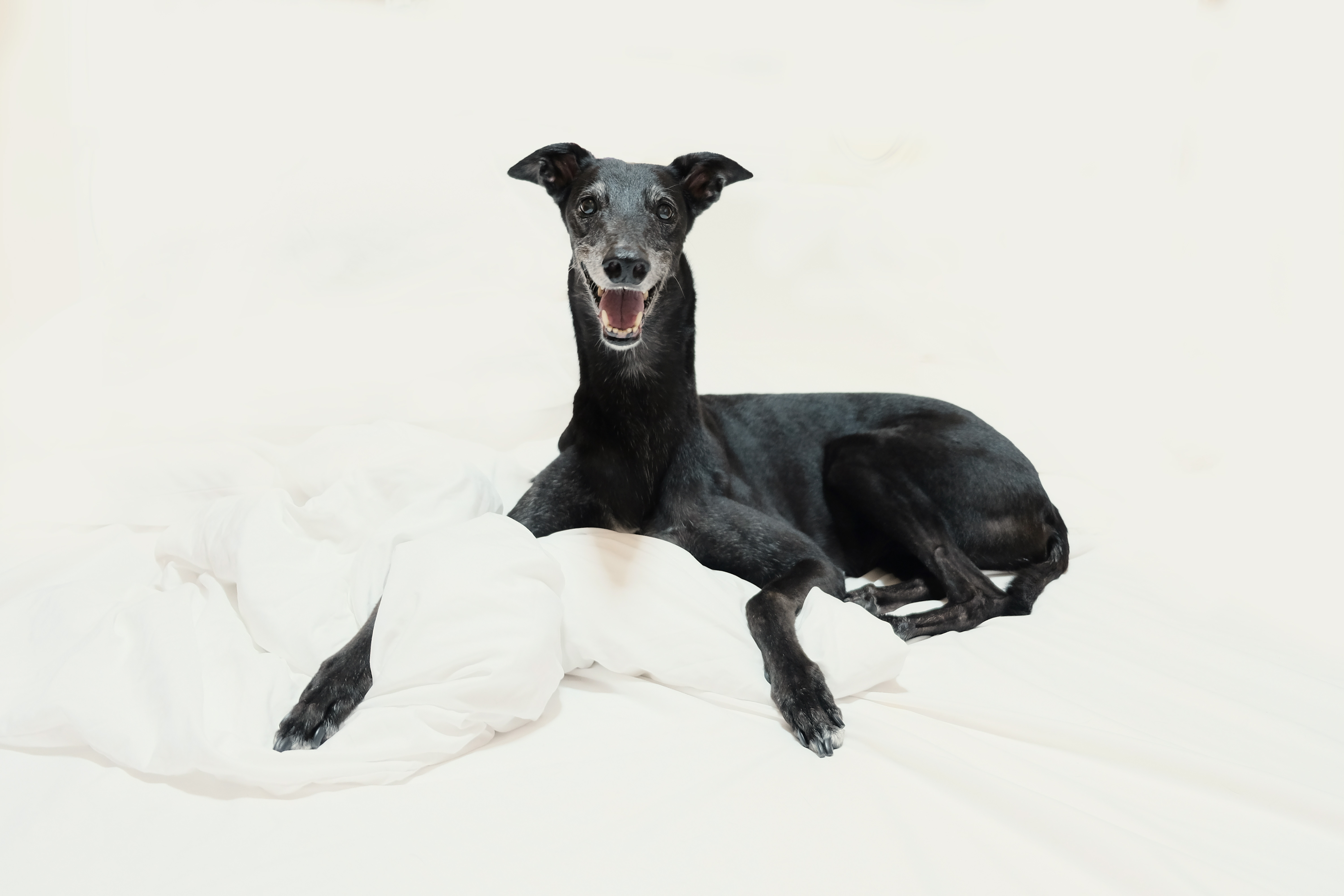
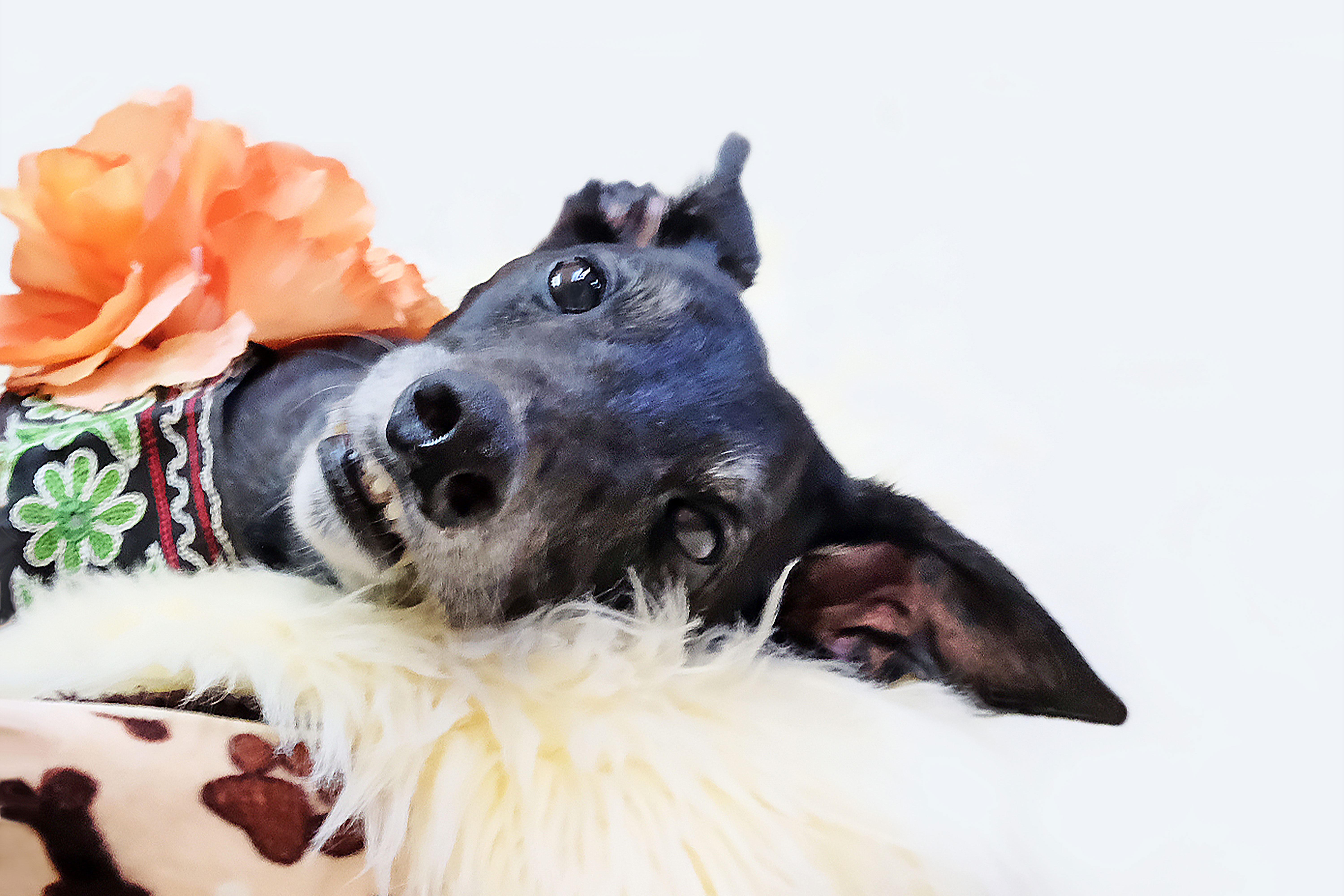
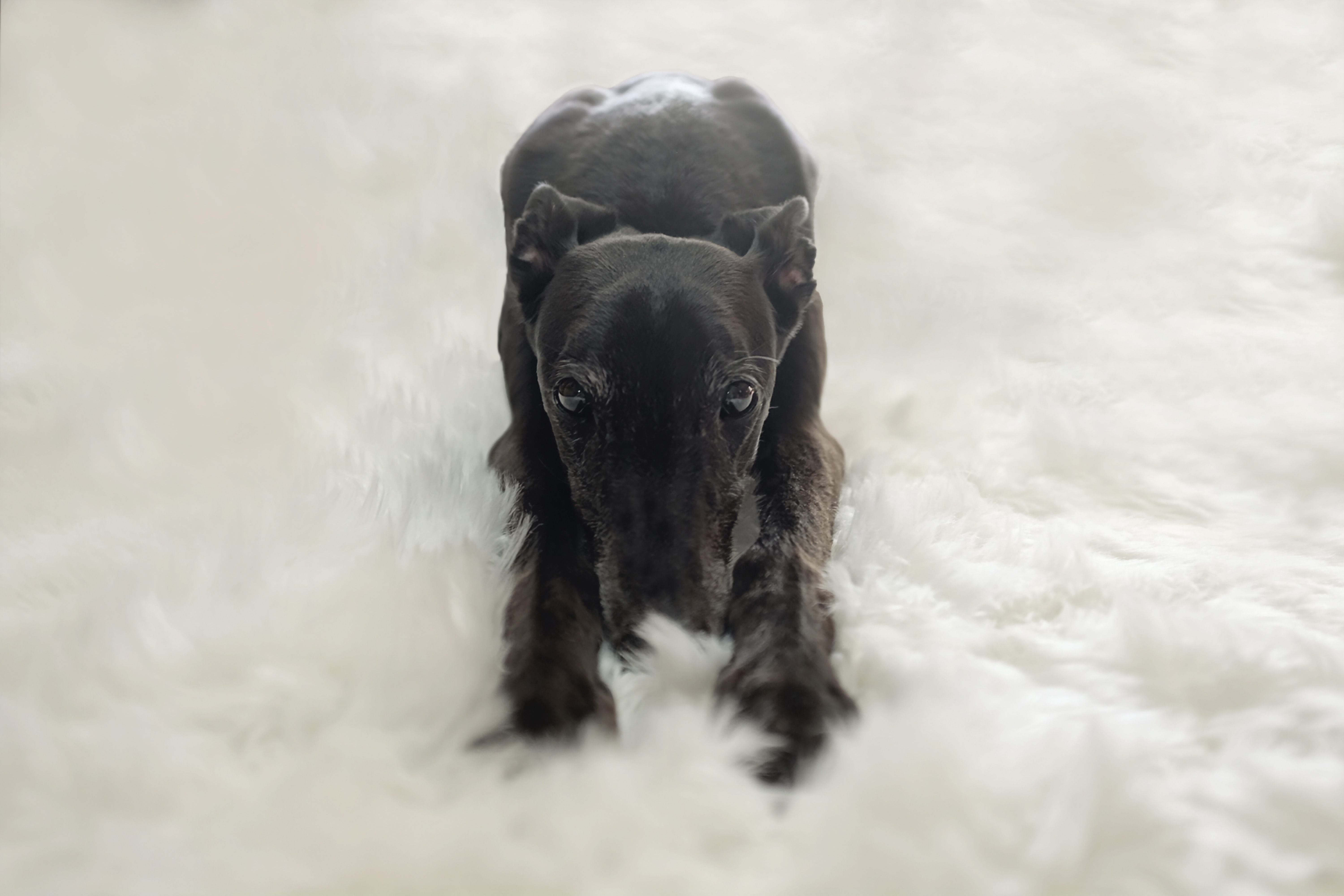
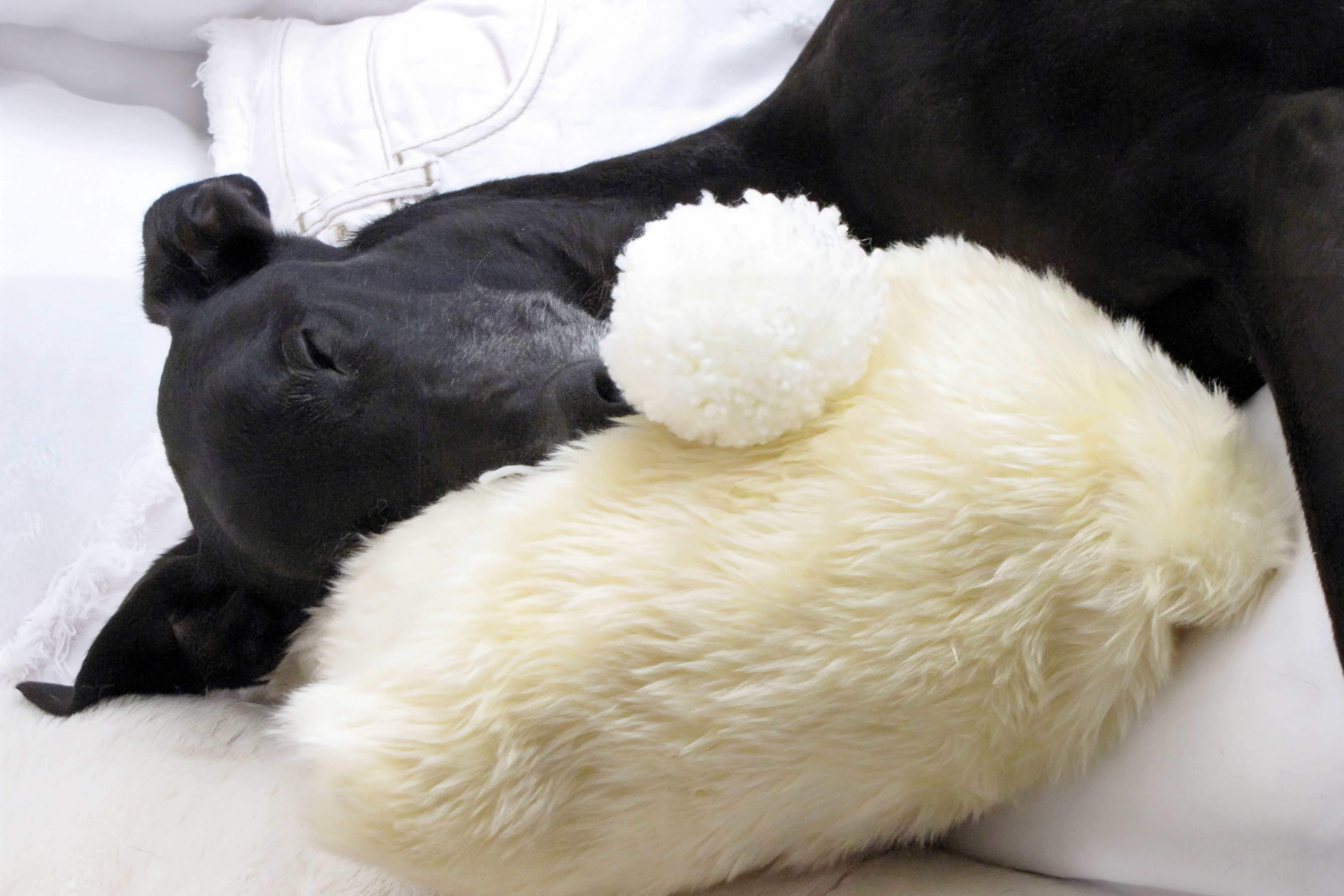
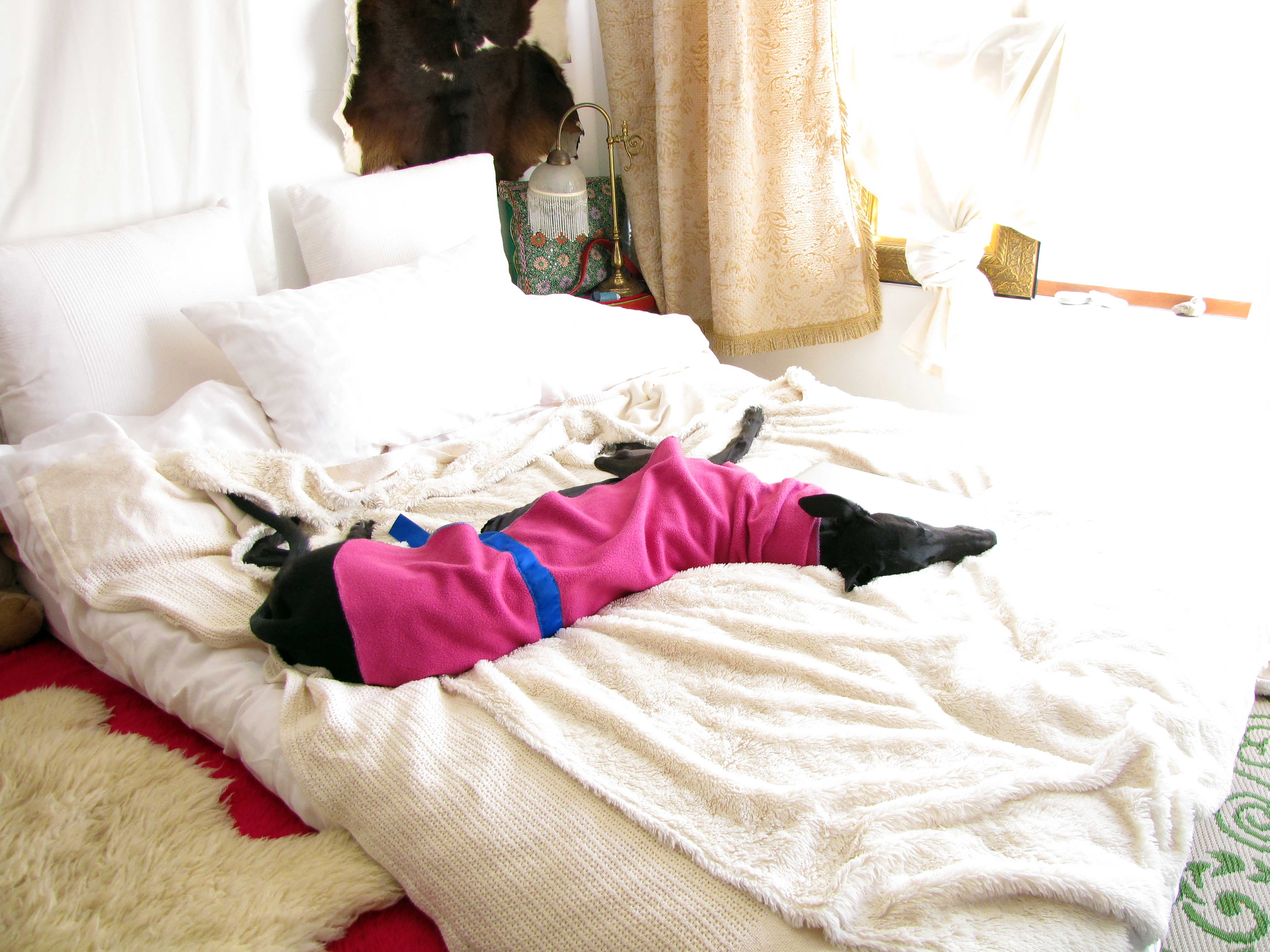

Lucy was (and remains) a dynamic creative influence on my professional work. The symbiotic nature of our relationship inspired my PhD dissertation about distinct Autistic elemental empathic resonance with non-human entities.5 Observing Lucy’s way of ‘sensing’ precipitated richer interpretations of Autistic sensory-cognitive experiences in my artistic practice. Lucy even helped me to design and choose the materials for Sonata in Z (2015),6 an immersive installation exploring sensory comfort from the Autistic paradigm. From this emerged one of my most popular research trajectories, Clement Space,7 about finding and establishing conducive space for respite and restoration.
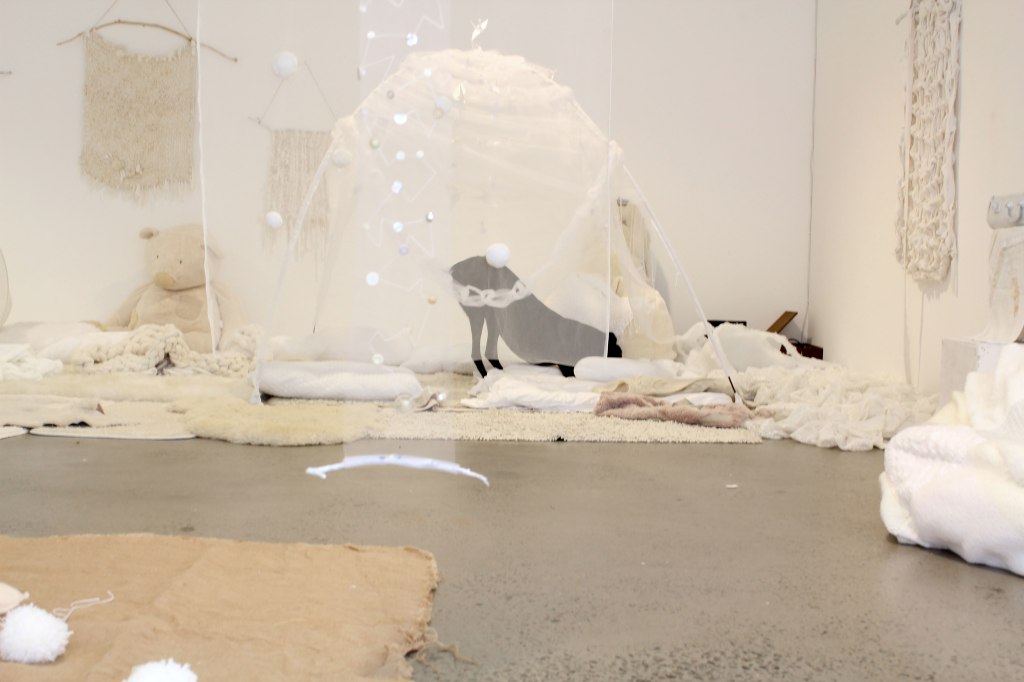




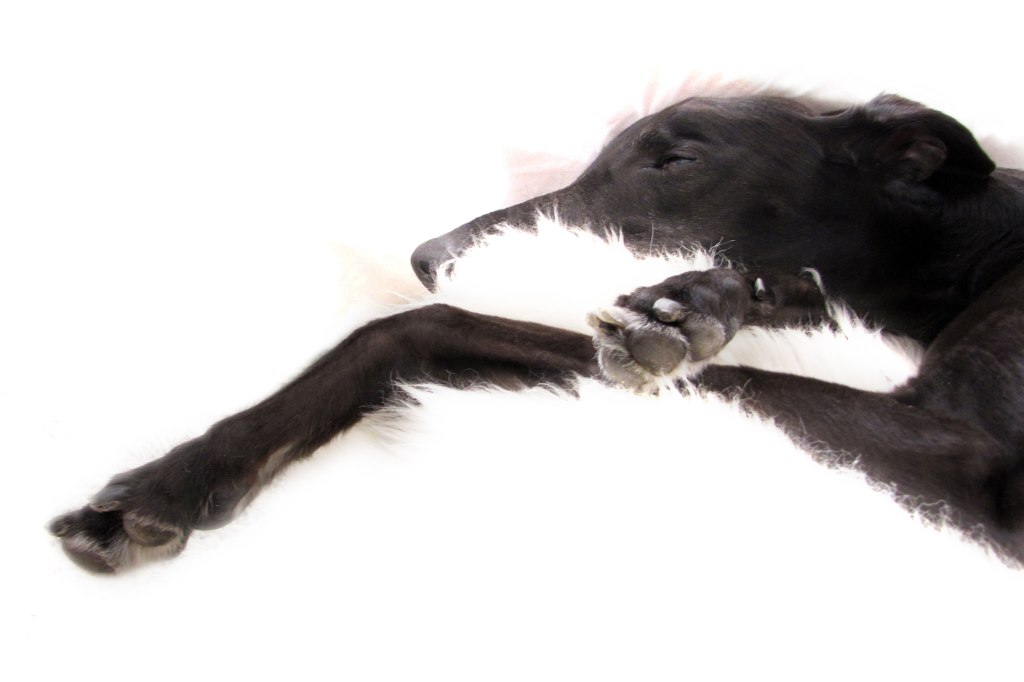
In 2021, I presented a whimsical glimpse of our close attachment in a multidisciplinary experimental digital show, Scheherazade’s Sea: continuing journey,8 featuring a cast of professional and amateur artists with different disabilities.
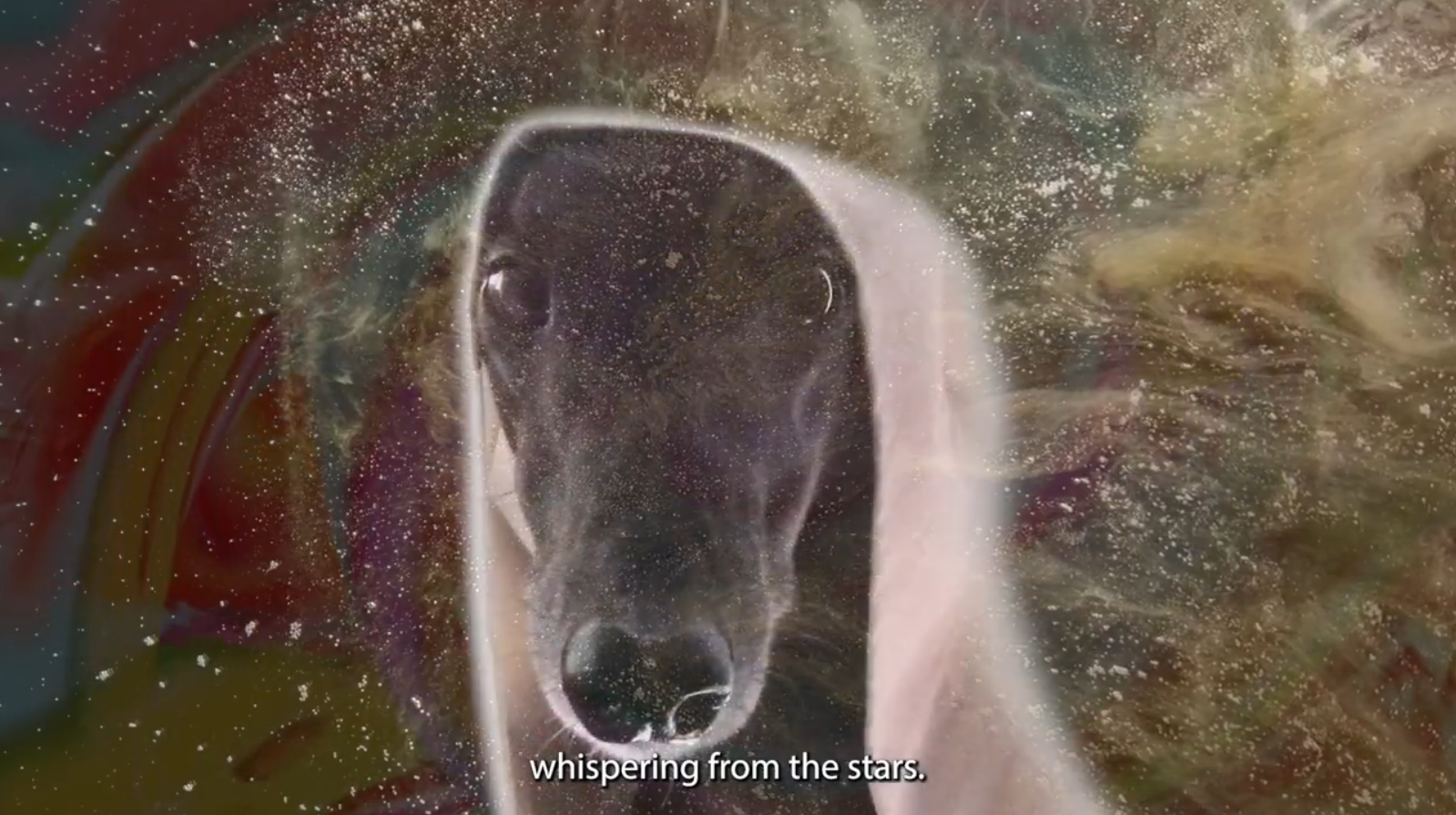

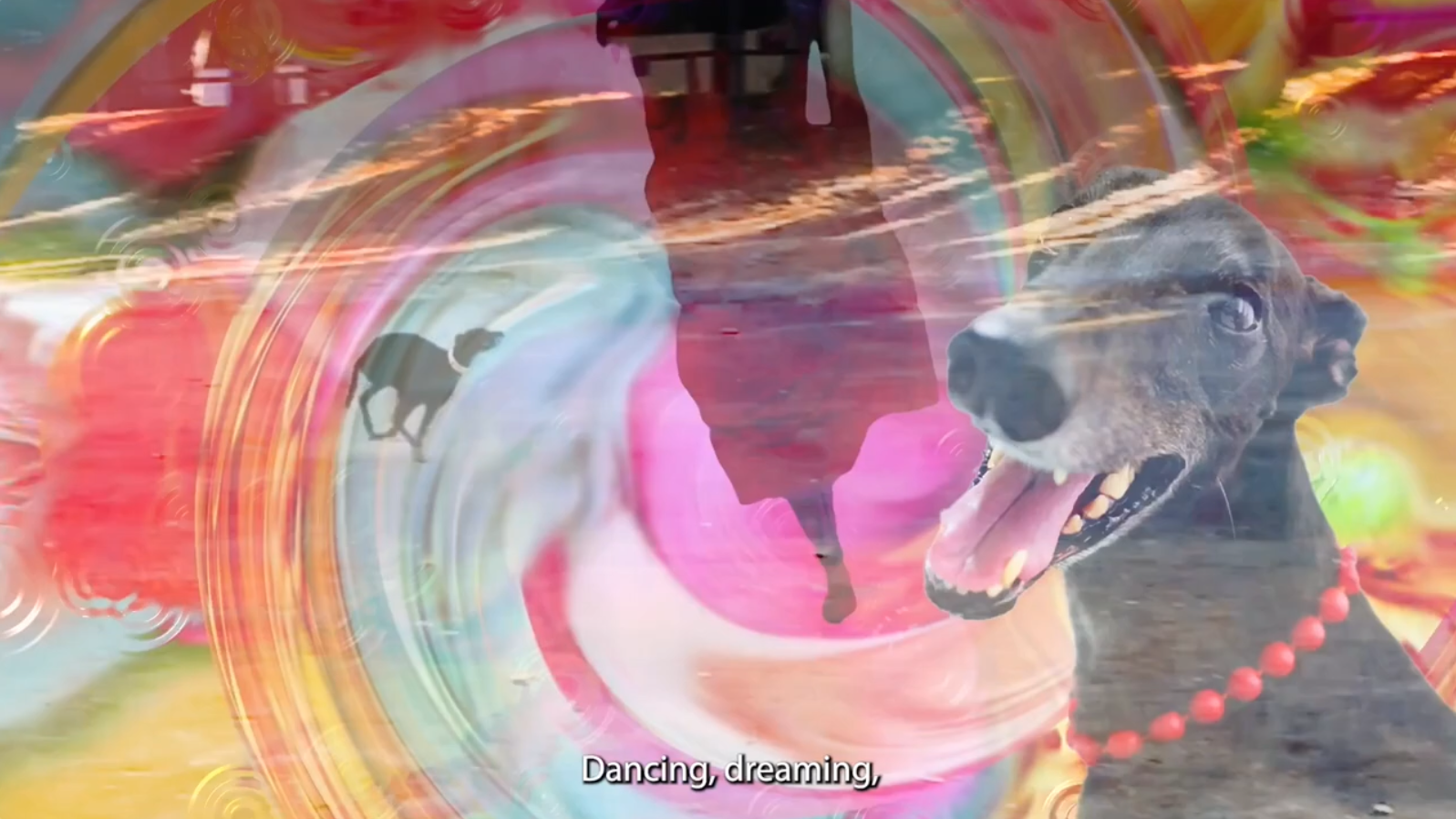
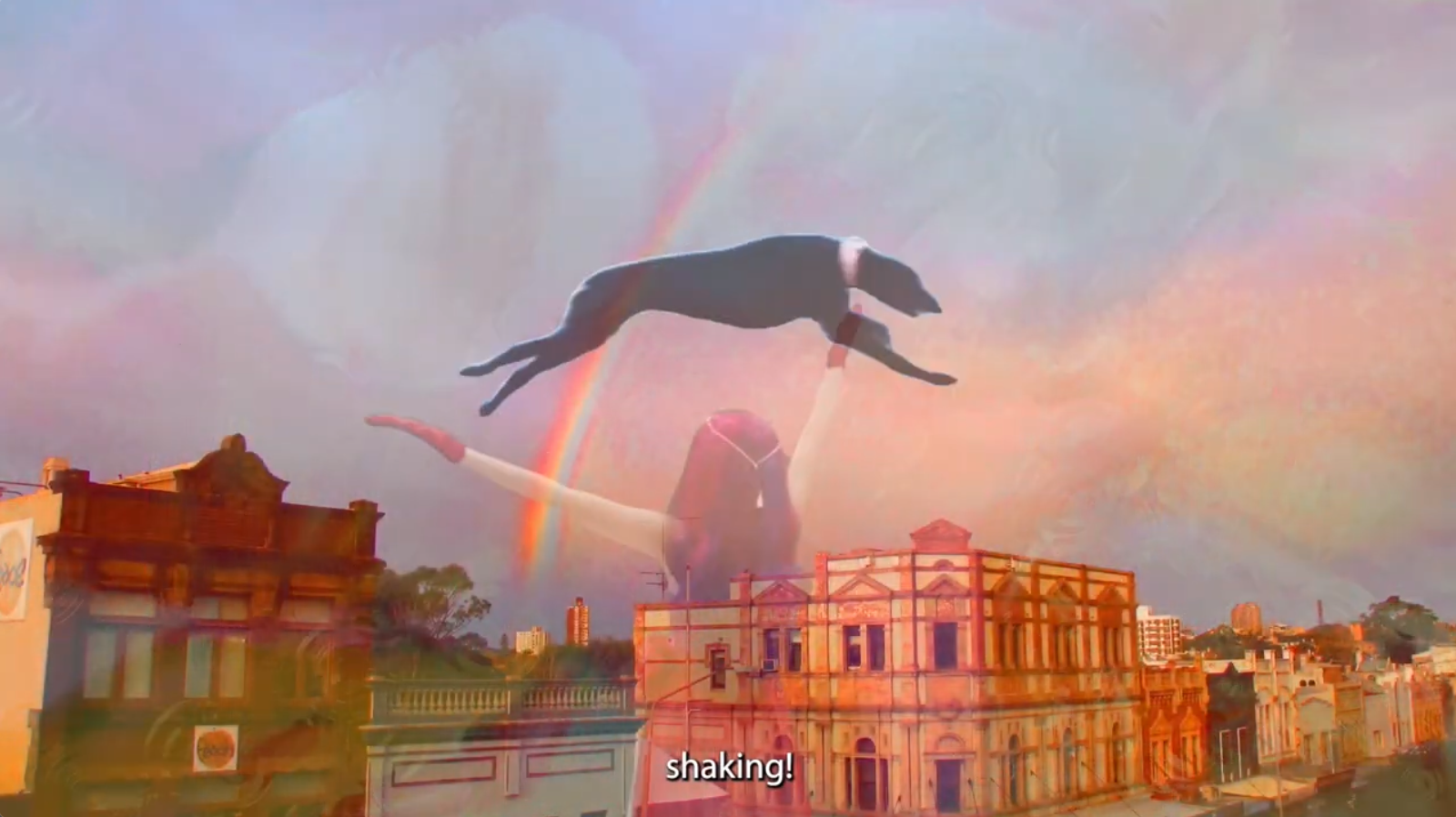
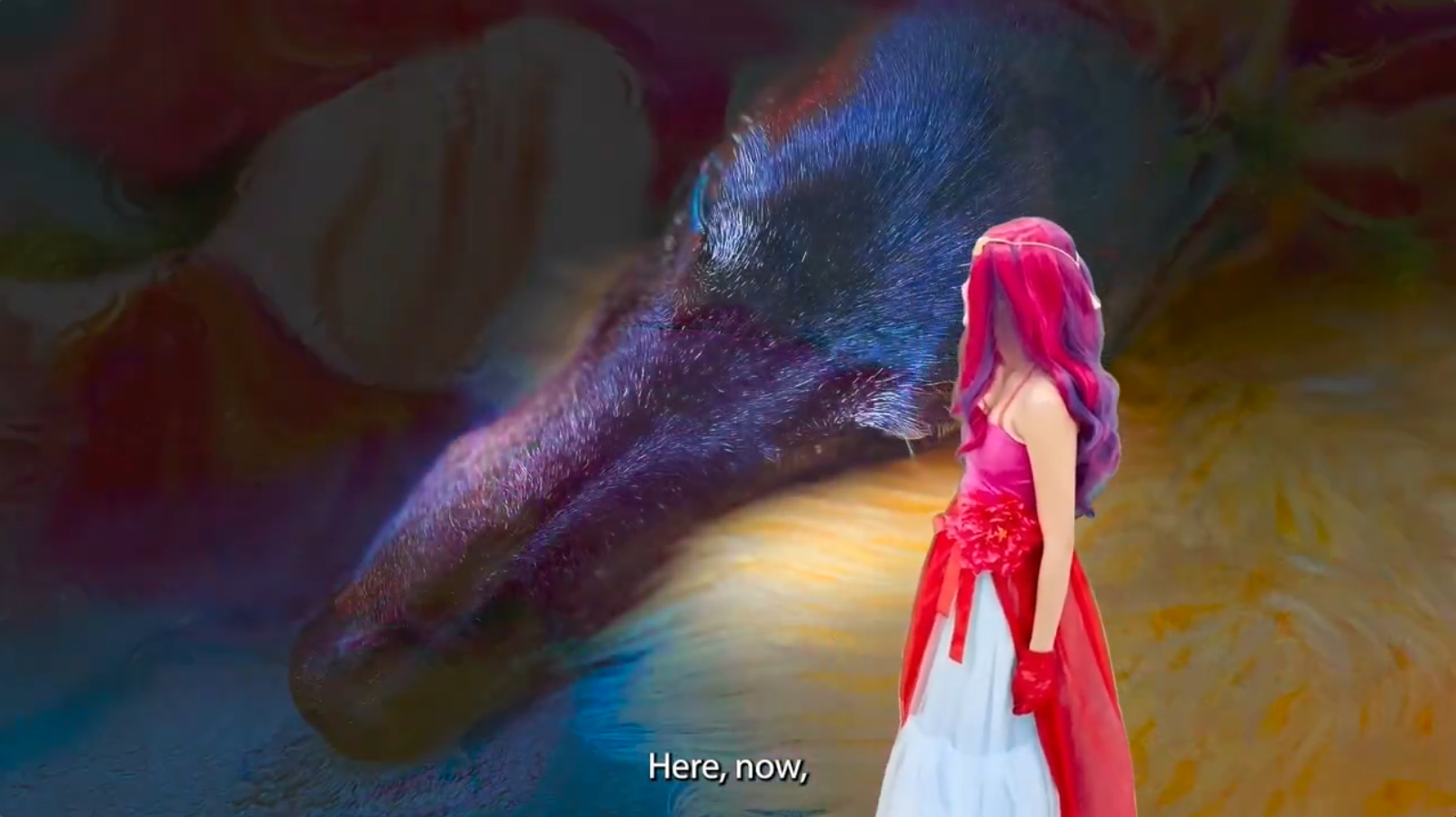

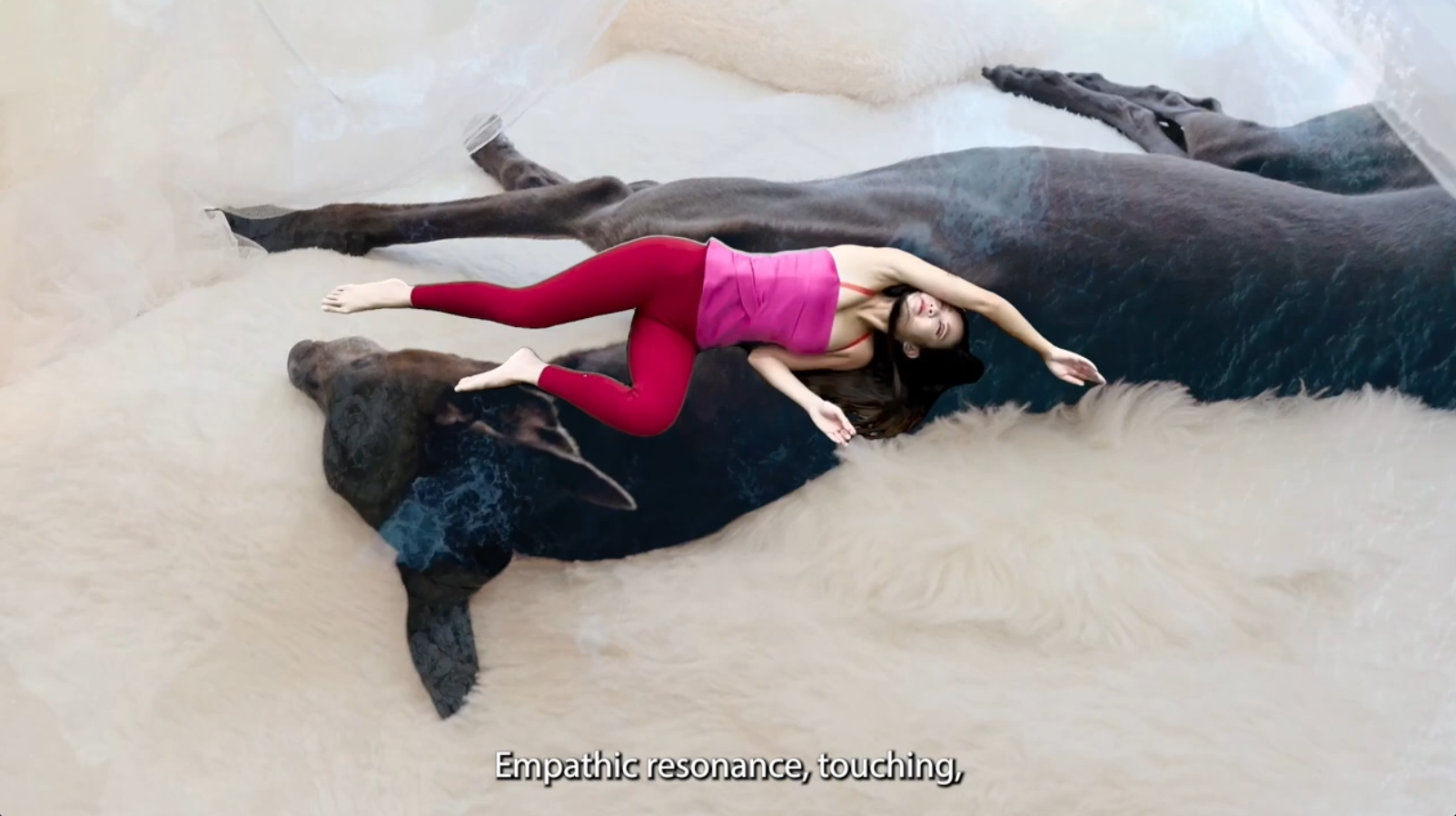


With Lucy, I have thrived and flourished, experienced amazing adventures beyond my wildest imagination, and my work has appeared in print, online media, television, radio, conferences, arts festivals and museums in the USA, UK, Australia, Hong Kong, South Korea, Japan and Singapore. It is therefore a straightforward, unembellished truth to state that I owe my life and worldly achievements to Lucy.

When Lucy died in March this year (2023), I became engulfed by a crushing desolation that I had never known before, and I desperately wanted to follow after her. My entire world crumbled and I reverted to my old struggles with severe insomnia.9 Concurrently, a polyphony of medical conditions, extant and ‘new’, exploded with aggressive violence into the foreground. I do not believe in artists “suffering for art”, but in reality, my very existence has been marked by affliction, a confrontation that Lucy softened and alleviated. In fact, the healing that Lucy brought reached far back into my past. More than twenty years ago, I wrote and recorded some songs expressing existential questions and yearnings, but it wasn’t until I was softly singing and playing these songs to Lucy as she neared her mortal end, that I recognised in a concrete, palpable way how Lucy embodied the answers to all my questions, and she was the ultimate gift of perfect love that I had longed for since childhood.10 My greatest regret is that I had not more consciously apprehended this exquisite truth much earlier. I shall grieve for her to the end of my days.

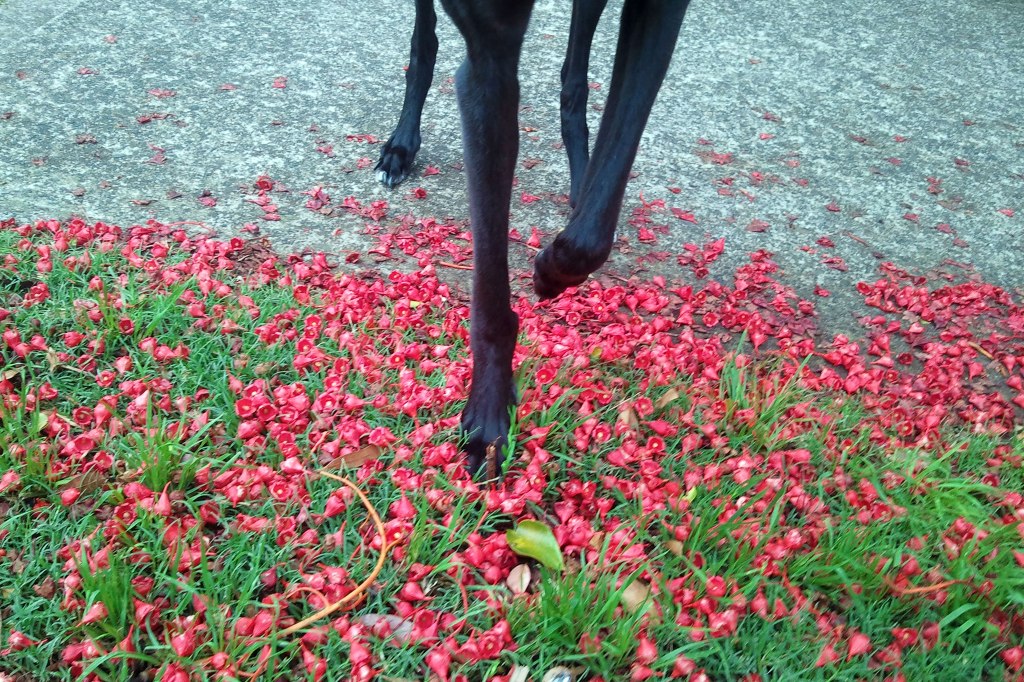


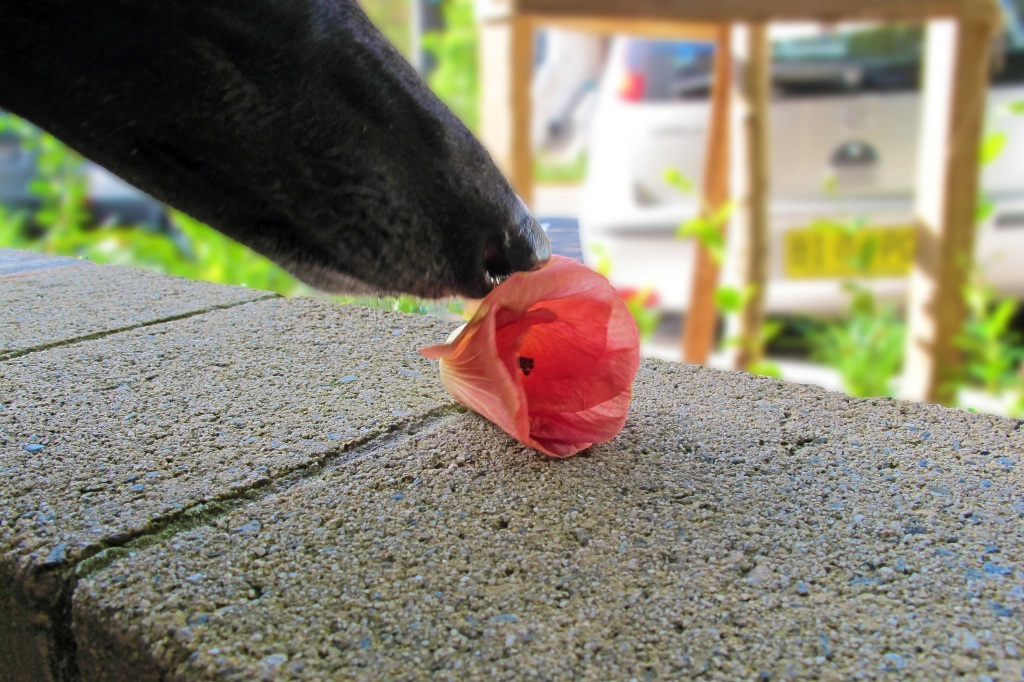
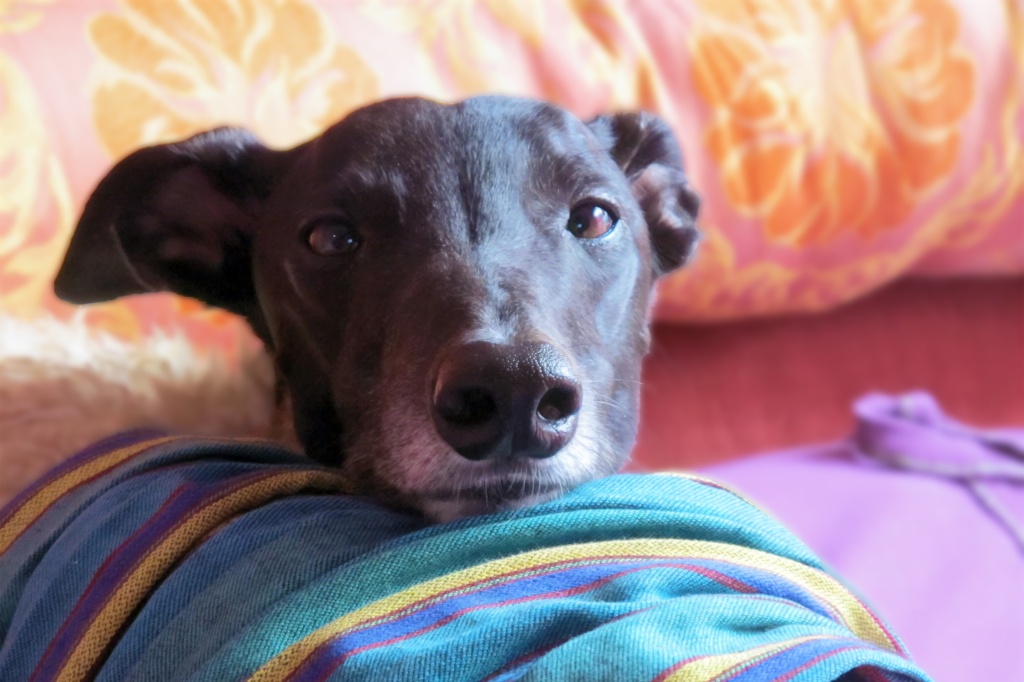
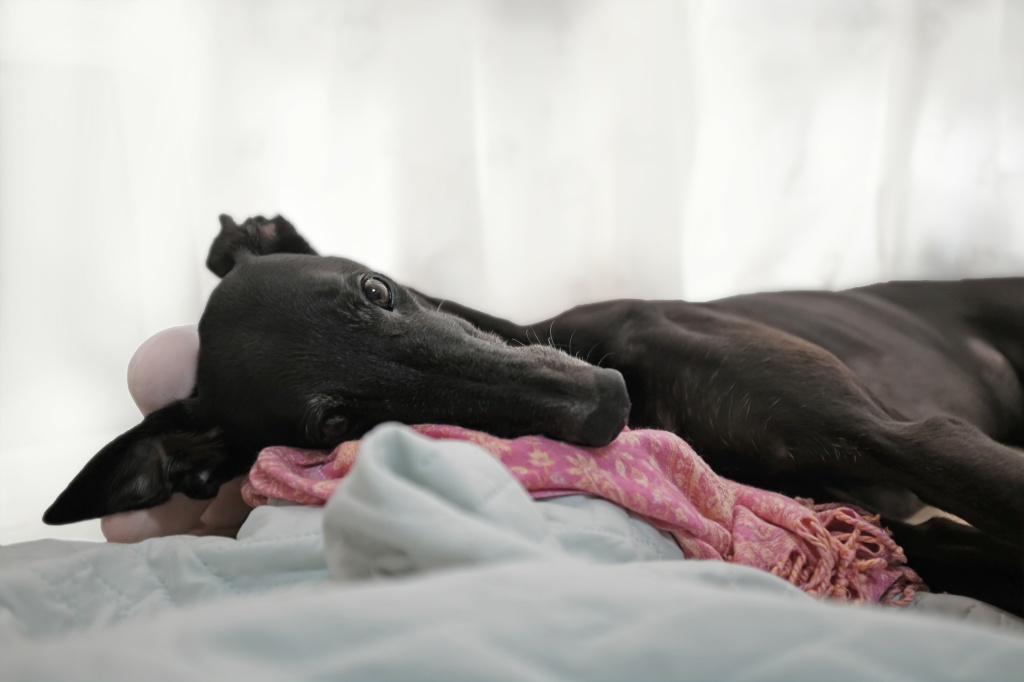
Epitome of pulchritude, Valiant Princess, tender lover, creative muse, and my moral responsibility, Lucy revealed the infinite prospects of vivid, sonorous magnificence that lie beyond the human obsession for navel-gazing. Yet, I wonder, is it even possible for the limited human intellect and senses to attain such percipience — to discern the susurration of the universe? But I must leave these mysteries to researchers and thinkers of the future who, without a doubt, surpass my own capacity. I made a promise to Lucy on her death bed to live to tell our story, in honour of her legacy. My mission henceforth is thus to focus on completing our ‘memoir-fantasie’, a multimedia autobiography in the form of Fantasia, Wake Up in My Dreams, as a testament to the Love of My Life, Lucy Like-a-Charm.
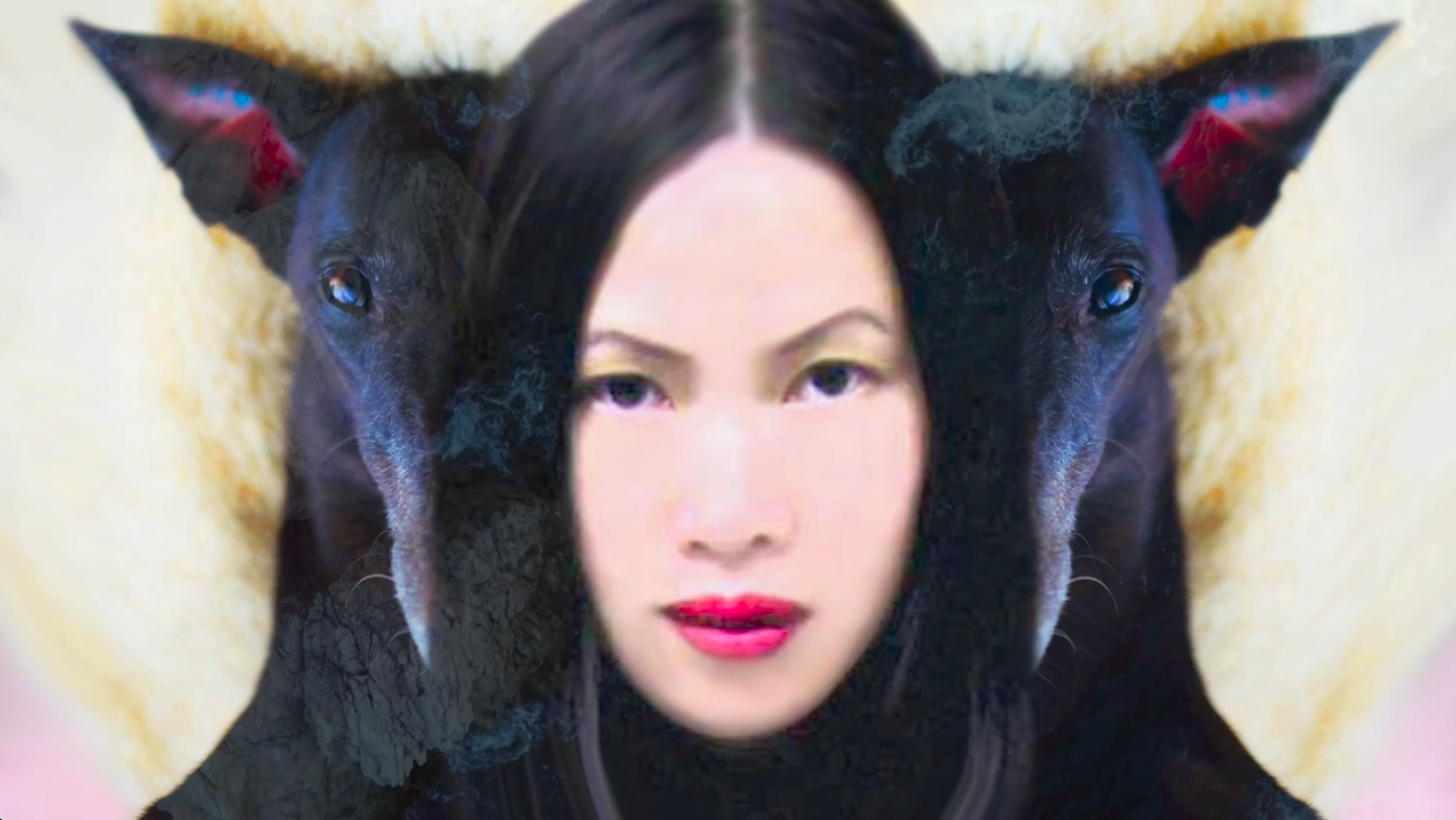
Endnotes:
1. I use Identity First language – Autistic / Autist – in line with the preference of the majority of Autistic persons worldwide. The premise for this is explained in numerous articles available online. Autistic advocate, Lydia Brown, wrote the following explanatory article in 2011. Lydia Brown, “Identity First Language,” ASAN – Autistic Self Advocacy Network, webpage, accessed 27 June 2023. https://autisticadvocacy.org/about-asan/identity-first-language/
2. Johan Nyrenius, et al. “The ‘lost generation’ in adult psychiatry: psychiatric, neurodevelopmental and sociodemographic characteristics of psychiatric patients with autism unrecognised in childhood.” BJPsych open vol. 9,3 e89. 24 May. 2023, doi:10.1192/bjo.2023.13
3. D. Mandell, “Dying before their time: Addressing premature mortality among autistic people,” Autism, 22(3), (2018): 234–235. https://doi.org/10.1177/1362361318764742
4. An action commonly referred to as “grounding”, a kind of deep pressure intervention that not only provides comfort during distressing situations but also serves to redirect or reconnect persons in dissociative states.
5. Dawn-joy Leong, “Scheherazade’s Sea: autism, parallel embodiment and elemental empathy,” PhD diss., (University of New South Wales, Australia, 2016), accessed 27 June 2023, https://dawnjoyleong.com/phd-dissertation-2016/
6. Dawn-joy Leong, “Sonata in Z, 2015”, webpage, accessed 27 June 2023, https://dawnjoyleong.com/performances-exhibitions/sonata-in-z-2/
7. Dawn-joy Leong, “Performances / Exhibitions”, webpage, accessed 29 June 2023, https://dawnjoyleong.com/performances-exhibitions/
8. Dawn-joy Leong, “Scheherazade’s Sea 2021 – excerpt ‘Celestial Being’, Youtube video, accessed 3 July 2023, https://youtu.be/iKbekC82VtU ; “Scheherazade’s Sea 2021 – excerpt ‘Lucy Like-a-Charm’, Youtube video, accessed 3 July 2023, https://youtu.be/lNfKW0Y6YQk ; “Scheherazade’s Sea 2021 – excerpt ‘Happy Feet’, Youtube video, accessed 3 July 2023, https://youtu.be/PAIyeZJhZZ4 ; “Scheherazade’s Sea: continuing journey, 2021,” webpage, 2021, accessed 28 June 2023, https://dawnjoyleong.com/scheherazades-sea-continuing-journey-2021
9. E. Halstead, E. Sullivan, Z. Zambelli, J.G.Ellis, & D. Dimitriou. “The treatment of sleep problems in autistic adults in the United Kingdom,” Autism, 25(8), (2021): 2412–2417. https://doi.org/10.1177/13623613211007226
10. Dawn-joy Leong, “Lucy Like-a-Charm – embodiment of love and grace,” Soundcloud audio playlist, 9 tracks, accessed 30 June 2023, https://soundcloud.com/dawn-joy-leong/sets/lucy-like-a-charm-embodiment

